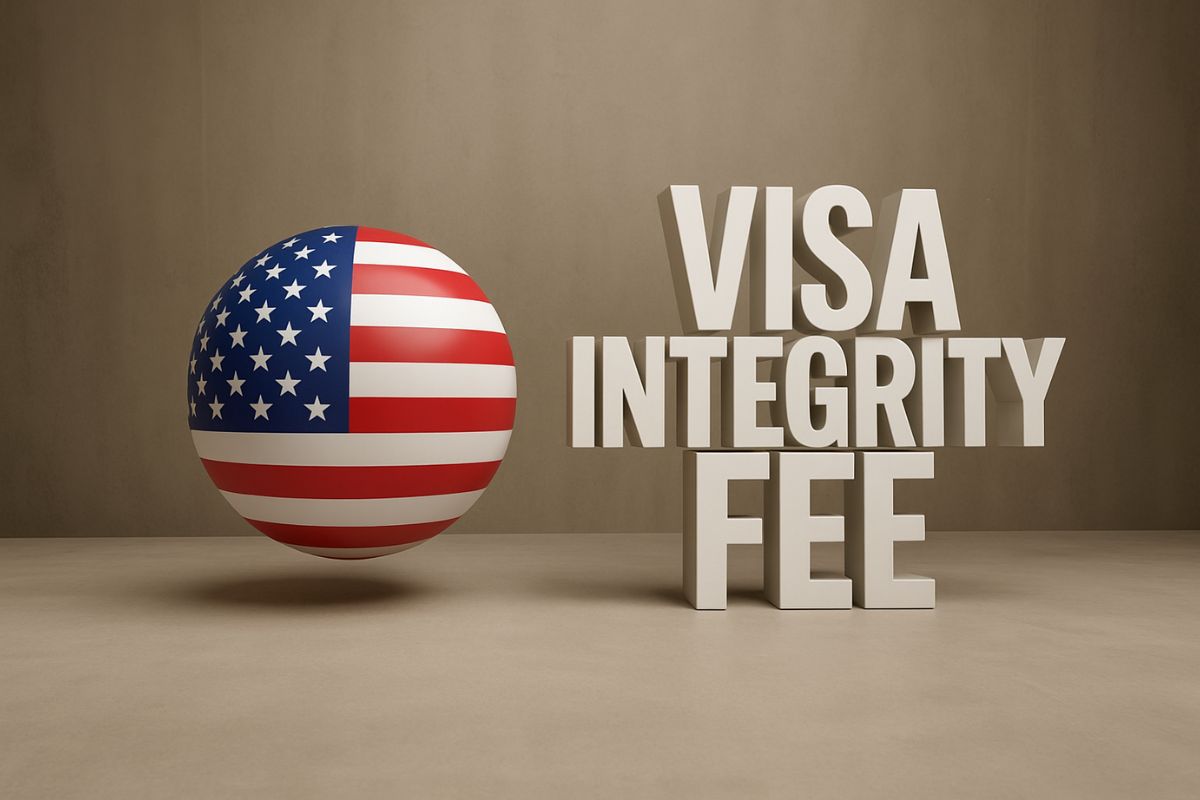On July 4, 2025, the U.S. government passed H.R.1 – the “One Big Beautiful Bill Act“, which quietly introduced a significant new charge for anyone issued a nonimmigrant visa to the United States.
The U.S. calls it the Visa Integrity Fee, and it affects nearly all temporary visa categories, from international students and skilled workers to visiting family members and exchange visitors.
This comes on the heels of earlier policy shifts, including a broader visa integrity fee proposal outlined earlier this year. You can read our breakdown of that here.
Who Will Be Affected?
If you’re applying for any nonimmigrant U.S. visa, like an F-1 student visa, J-1 exchange visa, or H-1B work visa, you’ll be on the hook for this new charge. Here’s the catch: this fee is applied at the time your visa is issued, not when you apply.
Examples of affected visa types:
- F-1, F-2 – Students and their dependents
- J-1, J-2 – Exchange visitors and family
- H-1B, H-4 – Skilled workers and spouses
- B-1/B-2 – Business and tourist visitors (if visa is required)
Most Canadians and Visa Waiver Program (VWP) nationals won’t pay this fee because they don’t need a visa and the U.S. doesn’t issue one to them.
How Much Is the Visa Integrity Fee?
For fiscal year 2025, the fee will be at least $250, or a higher amount set by the Department of Homeland Security (DHS) through formal regulations.
Starting in FY 2026, the U.S. will automatically adjust the fee for inflation based on the Consumer Price Index (CPI).
Importantly, this fee is not a replacement for other charges like the MRV fee (visa application fee) or reciprocity fees; it’s in addition to those.
When Does It Take Effect?
Although the law is technically in effect as of July 4, 2025, the U.S. government has not yet implemented the mechanisms to start collecting the fee.
USCIS clarified in a July 18 update that it won’t collect the Visa Integrity Fee yet, even though other HR-1-related fees will roll out starting July 22, 2025.
The delay is due to the need for cross-agency coordination, likely between DHS and the Department of State (DOS), since visa issuance and border enforcement fall under different agencies.
Can You Get a Refund?
Yes, but only under strict conditions. If you fully comply with the terms of your visa, such as:
- Avoiding unauthorized employment
- Leaving the U.S. promptly at the end of your authorized stay
- Or legally extending or adjusting your visa status
…then you may qualify for a reimbursement. However, the law clearly states that no one can waive or reduce the fee upfront.
Why This Matters for Travelers and Visa Holders
This new fee adds a significant cost to the already expensive process of applying for a U.S. visa. For many applicants, especially students and low-income visitors, this could be a deterrent or even a financial barrier.
It also signals a shift in U.S. immigration enforcement strategy—tying financial consequences directly to visa compliance, and placing more administrative weight on post-visa tracking.
Final Thoughts
If you’re planning to apply for a U.S. nonimmigrant visa anytime soon, budget for an extra $250 or more, even if it’s not being charged just yet. Once DHS finalises the rule and the payment process is in place, it will likely become a standard part of the visa issuance process.
We’ll keep you updated as new announcements come out. Bookmark our site and follow our coverage of evolving U.S. visa regulations, like this previous deep dive on the 2025 Visa Integrity Fee.
Follow and connect with us on Facebook, Twitter, LinkedIn, Instagram and Google News for the latest travel news and updates!
